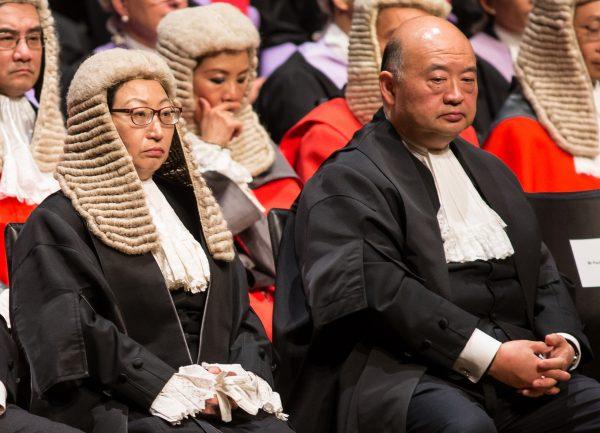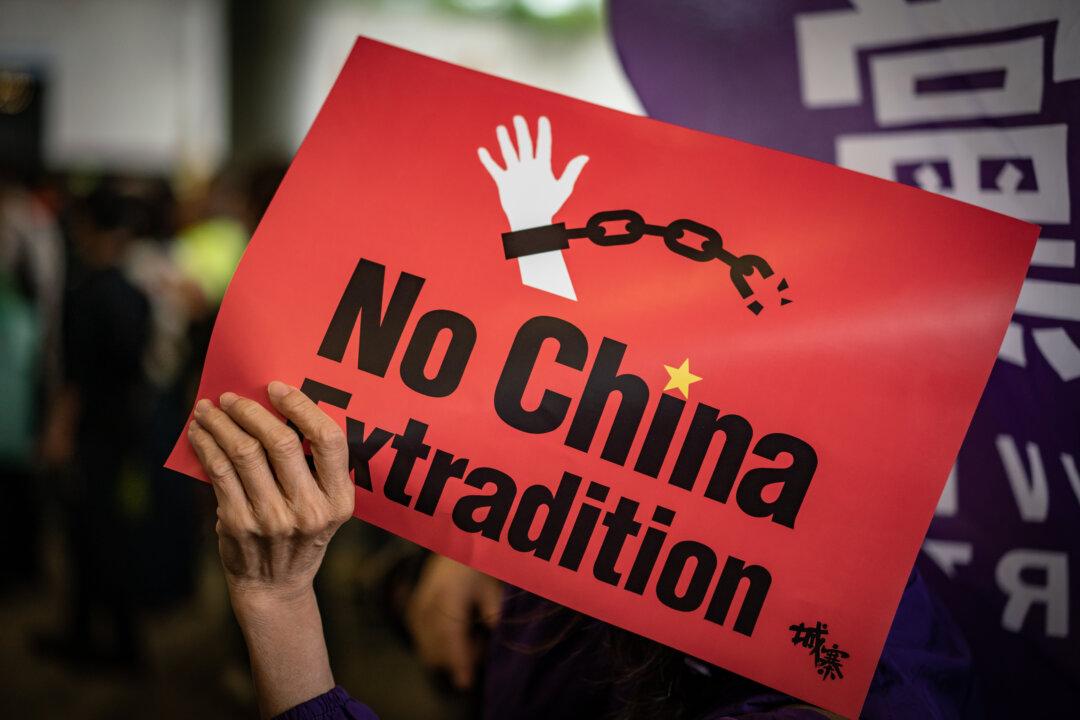Hong Kong’s legal community, unsatisfied by the city government’s proposed revisions to a bill that would allow the extradition of criminal suspects to mainland China, is making plans for a march on June 6 to protest the measure.
The city’s democracy activists continue to demand that the bill be scrapped completely.
Dennis Kwok Wing-hang, a member of the Legislative Council (LegCo) representing the legal functional constituency, said at a press conference on May 29 that he and others in the legal sector will organize a mass protest. LegCo is the city’s unicameral legislature.
He believes the city’s judicial system would be forced to comply with whatever extradition requests the government receives.
“The extradition will be decided by Hong Kong government [according to the planned extradition laws], not the court,” Kwok said.
Kwok and his colleague Claudia Mo Man-ching said that the parade, with marchers in black, will be held June 6, with Hong Kong judges, lawyers, and officials from the city’s Department of Justice planning to attend.
In Hong Kong court, judges and lawyers generally wear black robes.
Currently, extradition is decided with the approval of the LegCo. The bill would allow any suspect charged by Chinese authorities to be sent to mainland China, as long as the city’s leader, the chief executive, signs off on the extradition request.
Final Concessions
John Lee, Hong Kong’s security secretary, said on the evening of May 30 that after hearing feedback from business and other groups, the government decided to make changes to the controversial extradition bill in three areas.First, extradition would only apply to suspects facing a minimum punishment of at least seven years, rather than the initially proposed three years.
Second, the government added human rights-related provisions to the extradition preconditions, including presumption of innocence, the right to appeal, visitation rights, and no forced confessions.
Lastly, the government would only accept extradition requests from the highest judicial and prosecutor’s organ of the receiving country or region. In the case of China, that would be the Supreme People’s Procuratorate. Requests from local Chinese authorities wouldn’t be accepted.
Lee said these concessions are final, as the Hong Kong government believes they are “most suitable.”
The LegCo is set to vote on the bill during a second hearing on June 12. Given that it currently has a majority of pro-establishment lawmakers, the LegCo is likely to pass it.

Hong Kong's Chief Justice Geoffrey Ma (R) and Secretary of Justice Teresa Cheng sit during a ceremony held to mark the opening of the legal year in Hong Kong on Jan. 8, 2018. VIVEK PRAKASH/AFP/Getty Images
Judicial Community’s Anger
Since the Hong Kong Security Bureau first announced plans to amend its extradition laws in February, Hong Kongers have organized parades, petitions, and other protests against the changes, arguing that given the Chinese regime’s disregard for rule of law, the changes could allow Beijing to charge and extradite its critics with impunity.On May 29, three senior judges and 12 leading commercial and criminal lawyers spoke out against the extradition proposals, a rare public criticism given that the legal sector tends to keep quiet on political issues.
In a Reuters interview, the Hong Kong judges and lawyers said that extraditions are typically based on the presumption of a fair trial and humane punishment in the receiving country, under Hong Kong’s British-based common law system. The city is a former British colony.
But, “[in] the case of the mainland [China], it simply doesn’t exist,” one highly experienced judge said.





